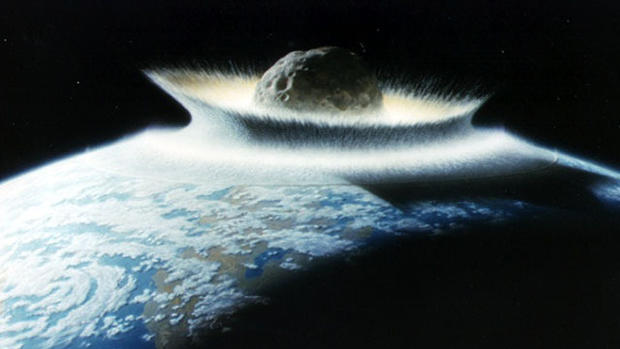NASA: No, an asteroid is not about to destroy the world
Maybe you've seen the headlines on the Web:
Will a giant asteroid hit Earth in September 2015?
Asteroid Impact Apocalypse 2015: Mass Anxiety As Conspiracy Theorists Predict Catastrophe
Meteor Gonna Asteroid that "could end human life" is heading for Earth
Well, NASA says you can relax, the end of the world isn't coming next month (at least not in the form of a giant space rock).
Responding to wild Internet rumors that an asteroid is careening toward Earth and will make impact near Puerto Rico between Sept. 15 and 28, 2015, destroying swaths of North, Central and South America, NASA scientists decided it was time to set the record straight.
"There is no scientific basis -- not one shred of evidence -- that an asteroid or any other celestial object will impact Earth on those dates," Paul Chodas, manager of NASA's Near-Earth Object office at the Jet Propulsion Laboratory in Pasadena, Calif., said in a statement Thursday.
The Near-Earth Object office watches for, tracks and characterizes asteroids and comets passing within 30 million miles of Earth using both ground- and space-based telescopes.
"If there were any object large enough to do that type of destruction in September, we would have seen something of it by now," Chodas said, adding: "In fact, not a single one of the known objects has any credible chance of hitting our planet over the next century."
It's been about that long since a huge asteroid crashed into Siberia, felling 80 million trees over 800 square miles.
An asteroid passed relatively close to the Earth in January -- at a distance of about 800,000 miles, just over three times the distance from Earth to the moon. That rock won't come so close again for 200 years. In the meantime, the next expected "close call" will be when 1999 AN10 flies past in 2027.
Should Earth find itself in the path of a careening asteroid, NASA is working on a protection plan. As part of its Asteroid Redirect Mission, the agency is developing a "gravity tractor" technique to divert a rock heading this way.
That of course assumes the rock is spotted in time, which NASA is confident it would be. If you want to help look (rather than wringing your hands in doomsday worry) you can download the Asteroid Data Hunter app and get to helping save the world.
